German Foreign Ministry Denies Arrest Of National In Iran
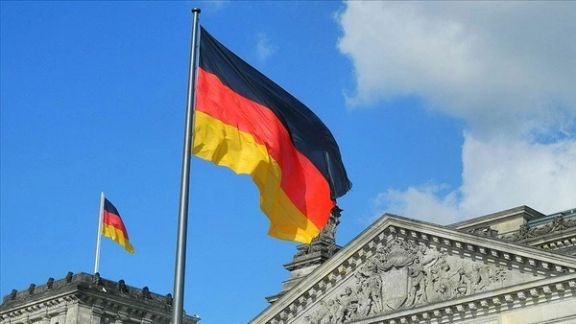
German foreign ministry says the authorities of the Islamic Republic have denied the arrest of a German citizen in Iran reported earlier this week.

German foreign ministry says the authorities of the Islamic Republic have denied the arrest of a German citizen in Iran reported earlier this week.
In response to Iran International, the German foreign ministry denied the arrest of one of its nationals in Iran, saying “the issue was raised in Iranian media, but after consultations with Iranian authorities, we realized this is not true.”
This ministry had earlier issued a statement following a report by Jam-e Jam daily announcing that the German embassy in Tehran is working hard to make this issue clear.
Jam-e Jam daily, which is owned by Iran's state broadcaster, reported Tuesday that a German national was arrested while taking photos of Omidiyeh oil facilities in the southern Khuzestan province.
A number of European citizens are imprisoned in Iran, but only the names of some of them have been published.
Irish-French prisoner Bernard Phelan is another foreigner arrested on October 3 during anti-regime protests that have swept the country following the death of Mahsa Amini in police custody on September 16.
He has been on hunger strike since the beginning of the New Year, but on Friday he accepted to eat upon the request of his family.
However, Phelan warned if there is no improvement in his situation, he will go on hunger strike again.
Earlier in the month, the Islamic Republic’s judiciary sentenced Olivier Vandecasteele, who was detained in 2022, to 40 years in prison and 74 lashes for alleged “spying and cooperation with the United States, money laundering and currency smuggling $500,000 out of Iran.”
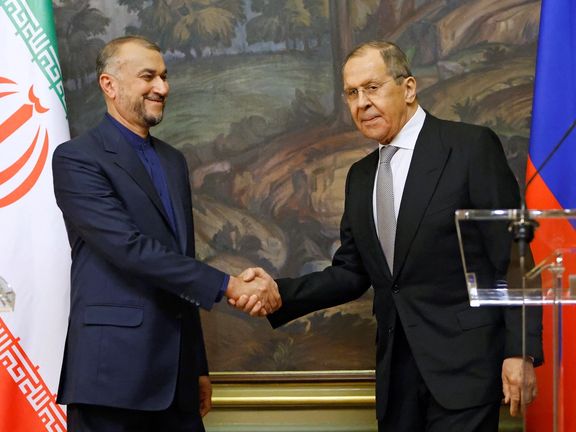
Iran’s foreign minister claims the Islamic Republic does not recognize Russia's annexation of occupied Ukrainian territories.
In an interview with TRT World, Hossein Amir-Abdollahian said Thursday that despite good relations between Moscow and Tehran, Iran still does not recognize the annexation of Ukrainian territories.
"We recognize the sovereignty and territorial integrity of countries within the framework of international laws, therefore, despite the excellent relations between Tehran and Moscow, we did not recognize the occupation of Crimea, Luhansk, and Donetsk regions," the minister said.
He also claimed that the Islamic Republic opposes the war and hopes for peace in Ukraine.
“When we say that the conflict in Ukraine is not a solution, we believe in our position as a fundamental political principle on which we rely," Amir-Abdollahian said.
His comments came at a time when Tehran signed a trade agreement with the authorities of the self-proclaimed Donetsk Republic back in June.
"At the Saint Petersburg International Economic Forum, the Donetsk People's Republic Chamber of Commerce and Industry and Farnoush Trade, an Iranian Commercial House, signed an agreement that will promote the development of trade and economic relations between our Republic and the Islamic Republic of Iran," wrote Donetsk President Denis Pushilin on social media in June.
However, the Islamic Republic denied the reports.
Iran’s regime is providing military support to Russia in its war against Ukraine by supplying Moscow with kamikaze drones. The US and some other Western countries have imposed sanctions against Tehran for providing the drones that target civilian infrastructures in Ukraine.

Iran’s sports minister has ordered an investigation into alleged sexual abuse of minors at a football school in the northeast of the country.
In a statement on Saturday the sports ministry said Minister Hamid Sadjadi ordered an investigation two weeks ago following reports of sexual abuse at a teenage boys’ football school in the religious city of Mashhad.
A former media manager for the Shahr Khodro football team said on social media that the parents of 15 players from this club have filed a complaint against the club and coaches for sexual assault on their children, reported IRNA Friday.
Shahrara daily, which is affiliated to Mashhad municipality, reported Friday that “families of the children had gathered in front of the headquarters of the provincial football organization to protest this tragedy.”
Since there was no follow-up by the authorities, the families were forced to publicize the case through media, the daily added.
Sexual abuse has made footballschools a serious threat for children and teenagers. Reports say even some mothers of the children receive sexual offers from the coaches and officials of these schools.
Reza Torabian, a former football player, had earlier said that “Some officials of football schools, ask the single moms to have sex in return for letting their kids play in famous teams.”
Sexual abuse of children and teenagers in football schools is not officially reported, but in the last two decades, Iranian media have published numerous reports of child abuse in football schools.

The commander of Iran’s Revolutionary Guard and the parliament speaker threatened Europe on Saturday that listing the IRGC a terror group will bring consequence.
Several Iranian hardliners have threatened the EU of repercussions inside Iran and in the region as well as in Europe if the EU designates the Revolutionary Guards as a terrorist organization.
On Thursday, the European Parliament passed a resolution calling on member states to designate the IRGC as a terrorist group. The overwhelming vote at the EU Parliament came after a massive rally by tens of thousands of Iranian expats in Strasbourg on Monday and condemnation of the IRGC's violent suppression of protesters in Iran.
Ironically, the hardliner officials and politicians who threaten the EU provide further proof of the IRGC's terrorist nature in their bellicose statements.
Ultraconservative lawmaker Mohammad Nabavian said on Wednesday that the Iranian Parliament will put Germany, France and the UK on Iran's terror list if the EU resolution goes any further. Meanwhile, he threatened that "the defenders of the resistance in the region" know very well how to treat those designated as terrorists by Tehran. By "resistance" forces, Nabavian was referring to Iran's proxy groups in Iraq, Syria and Lebanon including the Hezbollah, which have a proven track record of attacking US and EU interests in the region or taking hostages.
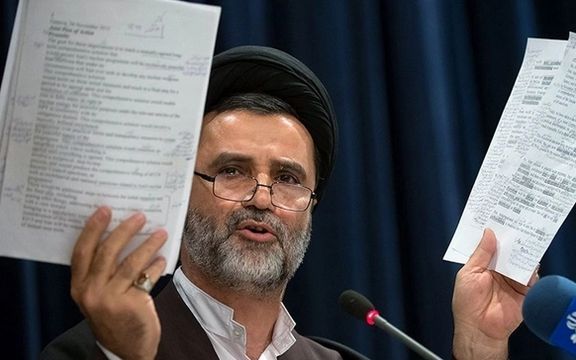
Nabavian further threatened that if Iran's interests are endangered by Europe, the interests of EU member states, their supporters, their companies, will be threatened no matter where they are located."
Ultraconservatives had also vandalized the British and French embassy buildings in Tehran during the past weeks. Nabavian further advised Europeans to "to take Iran's threats seriously."
Referring to former US President Donald Trump administration's designation of the IRGC as a terrorist group, Nabavian said it is not standard practice in the world to sanction the defensive forces of a country.
Meanwhile, IRGC General and hardliner lawmaker Esmail Kowsari warned EU member states: "You may not be able to tolerate the consequences of designating IRGC as a terrorist organization." Kowsari claimed that "The plan put the IRGC on Europe's list of terrorist organizations is a US-Israeli conspiracy and there is no logic behind it."
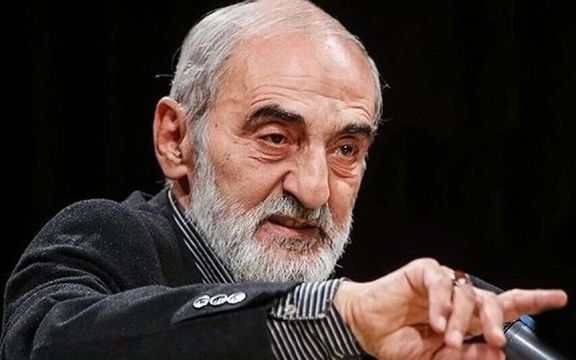
He suggested that "EU member states should preserve their independence from the United States and should oppose any action against the IRGC."Kowsari added that "Those who want Iran to return to the JCPOA know very well that these actions can put an end to any dialogue." He further warned that if the Eu wishes to designate the IRGC as a terrorist organization, it should consider the heavy repercussions of such an act."
This threat has some believers in the West, including the EU foreign policy chief Josep Borrell who is said to oppose designation the IRGC for fear of jeopardizing the revival of the 2015 nuclear deal, or JCPOA.
Kowsari further warned that "The ITRGC is one of the world's most powerful military organizations. Designating it as a terrorist group will not restrict its actions but it might change the situation."
Meanwhile, in another development, Hossein Shariatmadari, the editor of hardliner Kayhan daily in Iran threatened Sweden that IRGC security forces can easily abduct Swedish security officials and bring them to Iran for trial.
He made the outlandish statement while speaking about the trial of a former Iranian judiciary official convicted in Sweden on the charges of participating in killing thousands of dissidents in Iranian prisons in 1988.
In an interview with Eghtesad News, Shariatmadari mentioned other cases in which Iranian security forces abducted individuals from other countries for trial in Iran.
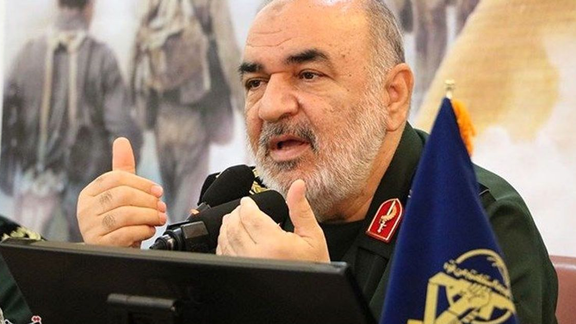
The commander of Iran’s Revolutionary Guard has threatened European states that they will “suffer the consequences” if they designate the IRGC as a terrorist organization.
Hossein Salami said Saturday “Europe has not learned lessons from its past mistakes and thinks it can undermine the IRGC… with such statements,” he declared.
He made the comments after a meeting with the speaker of the Iranian parliament Mohammad Bagher Ghalibaf (Qalibaf).
Salami also claimed that Europe owes its current security to the IRGC, saying “If it wasn’t for the efforts of the IRGC, especially the Quds Force and martyr Soleimani, the terrorism volcano created by the Americans would have engulfed the Europeans and the security that prevails in Europe today would have been destroyed.”
Ghalibaf and other Iranian lawmakers have also threatened European armed forces with a “terrorist” designation.
The Saturday meeting between the IRGC commander and parliament speaker, who is a former IRGC commander, was aimed at coordinating a potential response to the EU’s move.
The European Parliament overwhelmingly passed a resolution Thursday calling on the EU and member states to designate Iran’s Revolutionary Guard as a terrorist group.
The resolution demands Iranian authorities end the crackdown on popular protests that started last September after a 22-year-old woman was killed in hijab police custody.
It also demands that Europe should sanction the Islamic Republic’s Supreme Leader Ali Khamenei and its president Ebrahim Raisi.
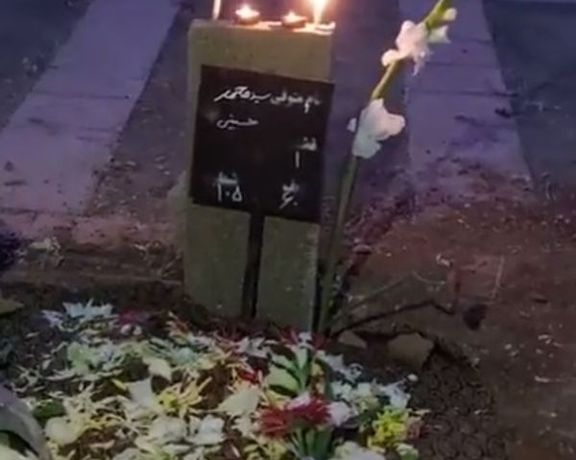
A stonemason who was hired to make a gravestone for executed protester Mohammad Hosseini has been arrested by Iran’s security agents.
The arrest was reported by Kamelia Sajjadian, a mother whose son, Mohammad Hassan Torkaman, was shot dead by the security forces during protests in the northern city of Babol in September.
She said in a tweet on Thursday that her friends informed her the stonemason and his coworkers were arrested for the crime of measuring the grave to make a tombstone, adding that “I have never seen such brutality anywhere in the world.”
“A government that considers itself a regional power is afraid of the stone on a dead person's grave,” she noted.
The 39-year-old Hosseini – with no apparent family members -- was one of the loneliest victims of the regime’s crackdown, and his hanging drew massive reactions on social media where Iranians can speak freely. Grieving over his execution, people regularly gather at his grave and shower it with flowers and distribute food and sweets in the honor of their new hero, as is customary by bereaved families in Iran.
The regime hanged Hosseini along with Mohammad Mahdi Karami for allegedly killing a member of the security forces during protests that were triggered following the death of 22-year-old Kurdish woman Mahsa Amini in police custody in September. The convictions were not based on a criminal charge related to the murder per se, but they were charged with ‘moharebeh’, meaning “war against God”, a vague religious concept.
In the past few weeks, the Islamic Republic prevented the installation of a stone on the grave of Mohsen Shekhari, the first protester that the regime executed. Later, they broke the tombstone that was installed stealthily.